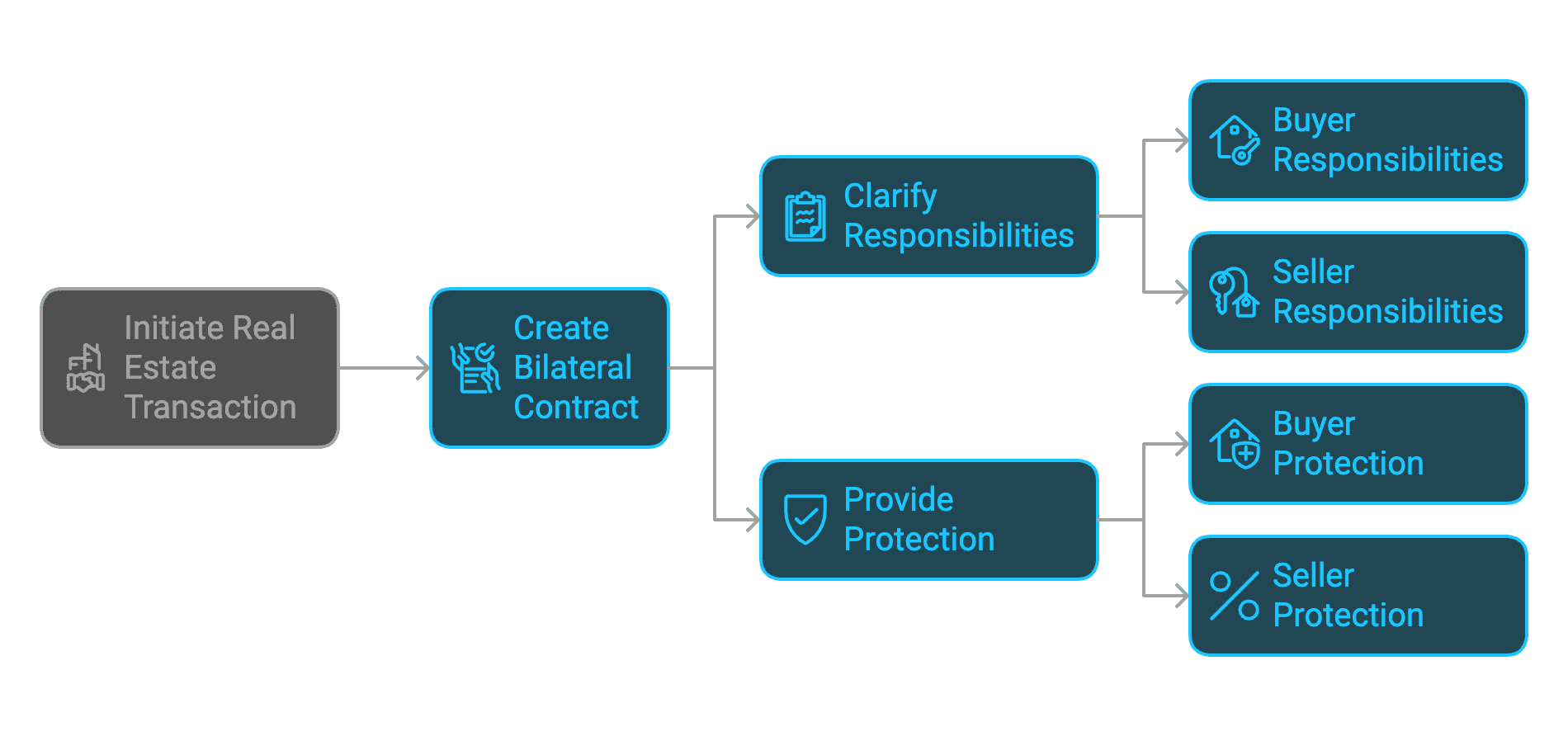What is a Bilateral Contract in Real Estate Transactions?
Think of a bilateral contract as a two-way street where both parties make promises to each other. You might not realize it, but you've probably been part of several bilateral contracts in your life - from buying a car to signing a lease.
Bilateral Contract: A bilateral contract is an agreement where both parties make legally binding promises to each other. In real estate, this commonly occurs when a buyer promises to purchase a property at a certain price and the seller promises to transfer ownership of that property, with both parties having clear obligations to fulfill.
The Foundation of Real Estate Transactions
Every successful real estate transaction starts with a solid bilateral contract. These agreements create a clear path forward for both buyers and sellers. Without them, real estate transactions would be chaotic and risky. They protect everyone involved by spelling out exactly who needs to do what.

Anatomy of a Real Estate Bilateral Contract
Let's break down what makes these contracts tick. You'll need these four essential elements:
Mutual promises: Both parties must commit to something
Consideration: Something of value must be exchanged
Legal capacity: All parties must be legally able to enter contracts
Clear terms: Everyone needs to understand what they're agreeing to
The main players in these contracts are:
Buyers who promise to pay
Sellers who promise to transfer property
Real estate agents who facilitate the deal
Supporting cast like lenders and title companies
Common Examples in Real Estate Transactions
You'll find bilateral contracts everywhere in real estate. Purchase agreements are the most common - that's your basic home-buying contract. Lease agreements are another big one, where tenants promise to pay rent and landlords promise to provide a place to live. Option contracts and real estate agency agreements round out the main types you'll encounter.

Legal Implications and Enforcement
These contracts have teeth - they're legally binding. If either party doesn't hold up their end, there are consequences. Buyers who back out might lose their earnest money. Sellers who renege might face lawsuits for specific performance (being forced to sell) or monetary damages.
Bilateral vs. Unilateral Contracts
The main difference? In bilateral contracts, both sides make promises. In unilateral contracts, only one side promises something. Think of it this way: a "For Sale" sign in a yard is unilateral - the seller promises to sell to whoever first brings the asking price. But once you sign a purchase agreement, that's bilateral - both sides are now committed.

Common Misconceptions and FAQs
Q: Is a handshake deal enough?
A: No - get it in writing!
Q: Can I back out of a bilateral contract?
A: Only under specific circumstances outlined in the contract
Q: What happens if one party doesn't fulfill their promise?
A: Legal remedies are available, from monetary damages to forced performance
Q: Are all real estate contracts bilateral?
A: Most are, but not all - like property option contracts
Best Practices for Bilateral Contracts
I always tell people: get everything in writing, know what you're signing, and work with professionals. Real estate transactions are too important to wing it. Take time to read and understand every clause.
Smart buyers and sellers include contingencies for things like financing, inspections, and appraisals. Keep copies of everything. If something seems confusing, ask questions or talk to a lawyer before signing.
The Future of Bilateral Contracts in Real Estate
Electronic signatures and digital contracts are becoming standard. Smart contracts using blockchain technology might be next. But the basic principle remains: two parties making mutual promises.
Bilateral contracts protect both buyers and sellers in real estate deals. At Bellhaven Real Estate, we guide you through every step of the contract process. Our team makes sure your interests are protected while keeping everything clear and straightforward. Give us a call to learn more about how we can help with your next real estate transaction.

